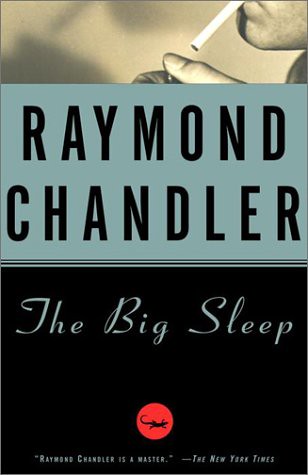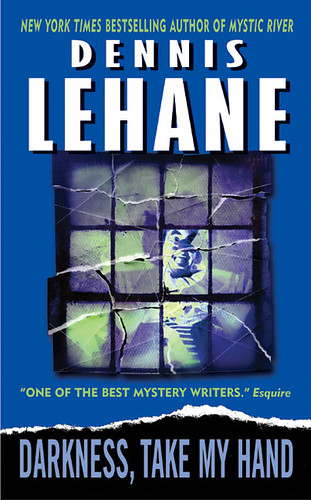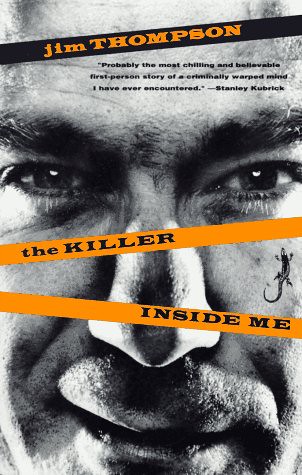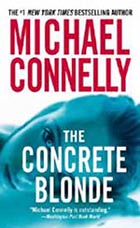OK, now that the pleasantries are out of the way, let me chatter a bit about what really drives me to write: Crime. Crime fiction, mysteries, thrillers, police procedural novels, private eyes -- whatever you want to classify it as -- is the kind of fiction that gets me going, and, the kind of fiction I aspire to write revolves around crime.
Now, before you jump to conclusions and assume I just haven't read other stuff, let me assure you that I've been a fan of a bunch of different kinds of genres over time. Sci Fi, historical fiction, straight up literature (vague, I know, but there you have it) and so on. But crime, or at least crime fiction done well, is not just about the good guys winning and the bad guys being punished. Often, it's quite the opposite. No, good crime fiction paints a picture of the world we live in, and shows us not only the crimes happening, but why they happen, and how the build-up and aftershocks of the criminal act affect the doer and the victim, and those around them.
I'm in the early stages of a first draft for a crime novel -- which you can read here. I actually write directly into the blog, then paste it into a document on my computer. I find it more liberating than staring at a blank document. The blog format allows me to scroll down and see what I've worked on before, leave myself little plot reminders or character notes ("Maybe the character should DIE?") and generally works better for me. Probably different for everyone else, but here we are.
Anyway, when I decided I was going to dive into this, I knew two things: 1) Obviously, I had to finish the damn book, and later, make an effort to see it in print. Otherwise, what's the point? 2) That it would be something I'd want to read. That's the hardest part, but also the most fulfilling. If you write something you enjoy reading, chances are, at least one other person will, too.
Now, I can't speak for all fans of mystery novels or crime in general, but just because something has a private detective in it, features lots of blood and has a surprise ending does not mean I'll love it. In fact, I'm usually put off by that kind of paint-by-numbers storytelling. Surprisingly, there's a huge and hungry audience for that kind of writing. It's just not for me. The stuff that really gets me going is really less about the crime and the Oh-shit-I-can't-believe-Tito's-face-got-blasted-off moment and more about the characters and society being spotlighted in the book. I'm less inclined to wallow in the cliches of the genre ("Oh, he's a bitter ex-cop with a drinking problem and mommy issues? Sold!"). The stuff I want to read should tell me something. About location. About the people that live there. What music do they listen to? What made Character X rob that store? Why did Character Y die in a pool of her own blood just outside her apartment?
Crime is about cause and effect, less about good vs. evil. And unlike the trite saying, crime does pay -- sometimes. But never fully, and never without consequence. Sometimes the good guys don't win. Hell, they rarely win outright. Crime fiction is a way to show the unfairness of life in a clear and unfiltered way, through the extreme actions and reactions of everyday people caught up in random or calculated acts of violence and malice. A good crime book is more than just a cool car chase, sexy femme fatale or an interesting CSI trick that leads to the bad guy's apprehension -- it's about conflicted characters muddling through the gray areas of their internal worlds and the city they live in and slowly realizing that life, like any good work of fiction, isn't compact or nicely tied together. Instead, it's got loose ends, nebulous characters, frightening choices and no tidy solutions.
So, yeah. I like crime books. But enough about why I like them. Let's get into the nitty gritty. Here are, in my estimation, the five crime books that most influence my own work (sometimes too much):

Raymond Chandler, The Big Sleep: The gold standard of P.I. fiction. Chandler's first -- and arguably best -- Philip Marlowe novel isn't so much about story -- you'll realize you have no idea what's going on at various points in the book -- as it is about style. Chandler's gritty, drunken and stumbling prose was probably cool then and even cooler now. Set the tone and many of the trappings of P.I. fiction for decades. A must-read.

George Pelecanos, A Firing Offense: If I was a more self-aware writer, I'd probably admit that I draw a lot of inspiration from this book. A lot. Moreso than the other four on the list. Nick Stefanos is a thirtysomething ad salesman for a chain of appliance stores. Nick is also a slacker, a smart-ass and a divorced drunk and social drug user. He's also a big music fan. A Firing Offense is the story of how someone trips and falls into another, more dangerous life, but a life they were always meant to lead. Riddled with musical references, wonderfully descriptive settings, akward encounters and frighteningly real action, this book is a perfect introduction to the world of Pelecanos.

Dennis Lehane, Darkness, Take My Hand: Killer clowns by the writer of Mystic River. Need I say more? OK, I will. This is the second novel to feature Lehane's detective team of Patrick Kenzie and Angie Gennaro, two young private investigators dealing with not only their own personal demons and relationships, but the raw violence and evil lurking behind the shadows of Boston's poorest corners. If you're a quick reader, I'd say start with the first Kenzie/Gennaro book, A Drink Before The War. If you want to read the best in the series, start right here. Either way, you won't be disappointed.

Jim Thompson, The Killer Inside Me: Lou Ford is a bore. He's the sheriff of a podunk town full of bland, cookie cutter citizens. At least, that's what it looks like to everyone else. But in reality, Lou Ford is a sociopathic killer. The slow and creepy unraveling of Lou's true persona is doubly disturbing because the book is told in the first person, and the unreliable narrator is certainly that. As the story progresses, the reader discovers the true Lou: cunning, murderous and morally vacant. One of the most disquieting books I've ever read.

Michael Connelly, The Concrete Blonde: Four years ago, Hollywood Detective Harry Bosch came across the serial killer known as the Dollmaker. In what was later deemed a righteous kill by his department, Bosch took down the killer as the suspect reached for what appeared to be his weapon. Bosch, always a police maverick, was demoted but also seen as a hero by many. Now, Bosch is facing a civil trial -- the Dollmaker's family is charging that the detective acted out of poor judgement and should be held responsible for the accused Dollmaker's death. If that wasn't enough, it looks like another Dollmaker victim has popped up -- except, this murder happened after Bosch killed the guy he thought was the killer. Connelly's third Harry Bosch book elevates the series from good to great, as the former crime reporter explores not only Bosch's fractured and conflicted psyche, but litters the stage with a number of potential killers and avenues of explanation. Definitely a puzzle in prose form, but with more heart than you'd expect.
Anyway, I'm happy to be here. Hope you guys enjoy SILENT CITY as it moves along, and my contributions to this space.






2 comments:
Welcome on board, suckerman! Glad to have you here. Great post - and I'm looking forward to reading more of the novel!
Glad you liked it. Maybe the next few will focus on other cool crime books.
KING SUCKA
Post a Comment